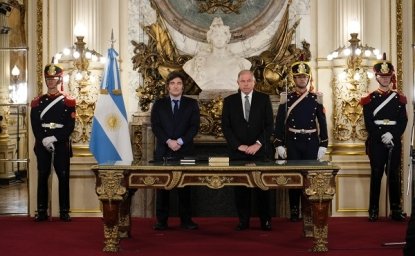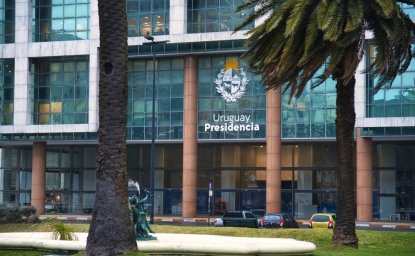Q: You co-authored the report “Transparency and Trust in Government: Evidence from a Survey Experiment” to learn how citizens respond to government communication strategies, using Buenos Aires as a case study. Why Buenos Aires?
A: There were several reasons for our choice. First, Buenos Aires had been very active in expanding its presence online. Second, Mayor Horacio Rodríguez Larreta had issued a series of pledges or policy goals at the beginning of his tenure that were being tracked online. Third, Buenos Aires conducts regular online surveys of citizens we could attach questions to. Finally, and most importantly, its government has a strong commitment to transparency and the evaluation of its policies. (Because of this, we are conducting several evaluations of Buenos Aires public policies at this moment.) As with all the work we do at the Inter-American Development Bank, we look for as many opportunities as possible for evaluating programs and sharing that information with other governments so we can improve public policies and lives in the region.
Q: The report notes the Buenos Aires City government posts policy goals on its Web site for citizens to monitor, and you found 60 percent of porteños know where to find that information. Was that surprising? Are Buenos Aires residents accessing this information? Are they holding public officials accountable for their policy promises?
A: Most studies find citizens rarely visit government Web sites. Instead, they gather information mostly from news organizations and social media. The fact that a majority of people in Buenos Aires recognized the existence of the mayor’s policy goals can be explained by the information campaigns the government carried out, and the fact that the mayor’s commitments were well publicized. We don’t have information about how individuals are using the information posted by the government. However, we have two pieces of data, from other studies, that seem to suggest that once this type of information is available, citizens use it. First, since Buenos Aires passed its freedom of information law, the number of requests for information has been growing steadily every year; this shows a growing interest for information and accountability. Second, as a government shows it can provide more and better services, the demand for government services seems to increase. For example, a paper by Laura Trucco – “Broken Cities: The Effect of Government Responsiveness on Citizens’ Participation,” also based on research in Buenos Aires – shows that when a government repairs sidewalks after citizens file complaints, other citizens are more likely to issue additional requests for public maintenance work.
Q: Your study finds that more information about government initiatives and results increases perceptions of transparency and trust in government. In Latin America, however, corruption scandals seem to be undermining confidence in government. Given persistent corruption problems, is it possible for governments in this region to use communications strategies to restore public trust and faith in institutions?
A: Trust in government institutions is very low in the region, and has been falling for more than ten years. Information about corruption and the large number of scandals that have been in the news may explain part or all of that decline. We also know that individuals tend to react more to negative information than to positive information. Our research agenda for the next few years is focused on understanding how information and other interventions can help overcome this phenomenon. Preliminary evidence seems to indicate that governments have to be very open about saying what they are going to do; doing it; and then communicating what they did.
It is important to note that strategies for increasing trust are broader than just using communication campaigns. Providing equal access to government services, enforcing laws and regulations fairly, and reducing inequality and discrimination are just a few examples of additional strategies that governments should pursue to rebuild public trust.
Q: Although your study doesn’t mention social media, citizens are relying heavily on social media to learn about government performance. How would you evaluate the effect of social media on public perceptions of government transparency and trust in public institutions? Are governments successfully using these new communications tools?
A: This is not something we have studied, but it is in our agenda. In particular, we would like to understand whether the surge in the use of social media could help explain, at least in part, the worldwide drop in trust in government institutions. The key is understanding whether this effect is driven by social media providing people with more information (people learning about corruption scandals that had been hidden); providing information that is not necessarily accurate (such as conspiracy theories); or providing a forum for spreading public disgust. Political candidates have been using social media effectively, so it would be a natural step for governments to use it effectively too. Of course, the tool can only be as good as the information you share. More efficient and effective policies are key.

Argentina Project
The Argentina Project is the premier institution for policy-relevant research on politics and economics in Argentina. Read more


Latin America Program
The Wilson Center’s prestigious Latin America Program provides non-partisan expertise to a broad community of decision makers in the United States and Latin America on critical policy issues facing the Hemisphere. The Program provides insightful and actionable research for policymakers, private sector leaders, journalists, and public intellectuals in the United States and Latin America. To bridge the gap between scholarship and policy action, it fosters new inquiry, sponsors high-level public and private meetings among multiple stakeholders, and explores policy options to improve outcomes for citizens throughout the Americas. Drawing on the Wilson Center’s strength as the nation’s key non-partisan policy forum, the Program serves as a trusted source of analysis and a vital point of contact between the worlds of scholarship and action. Read more

Explore More
Browse Insights & Analysis
Uphill Battle for Argentina’s Feminists

¡Afuera! Milei Puts his Stamp on Argentine Diplomacy


